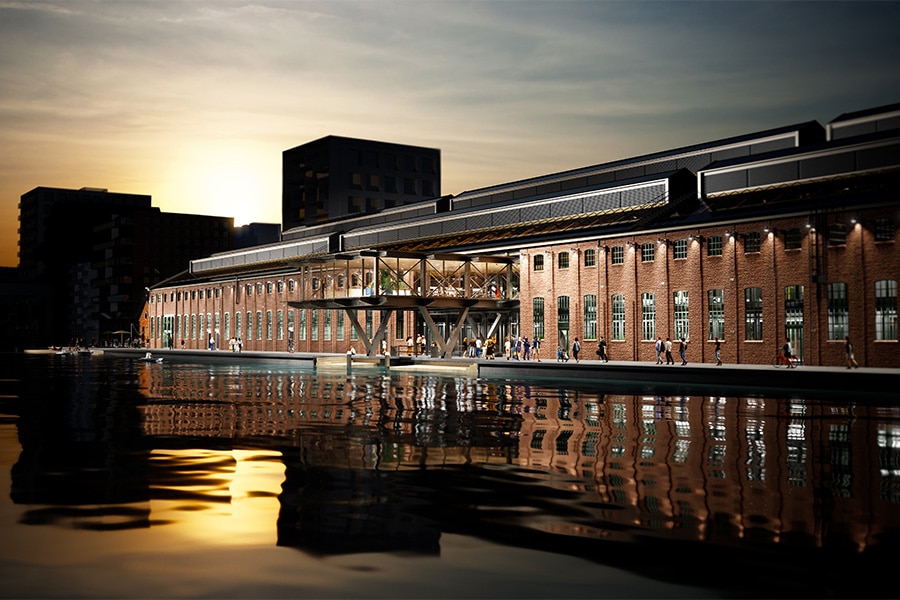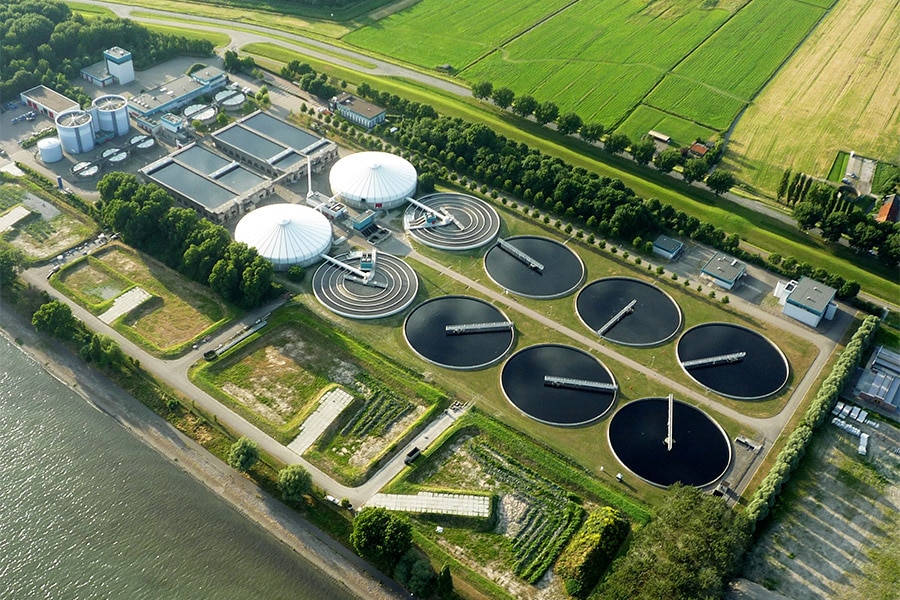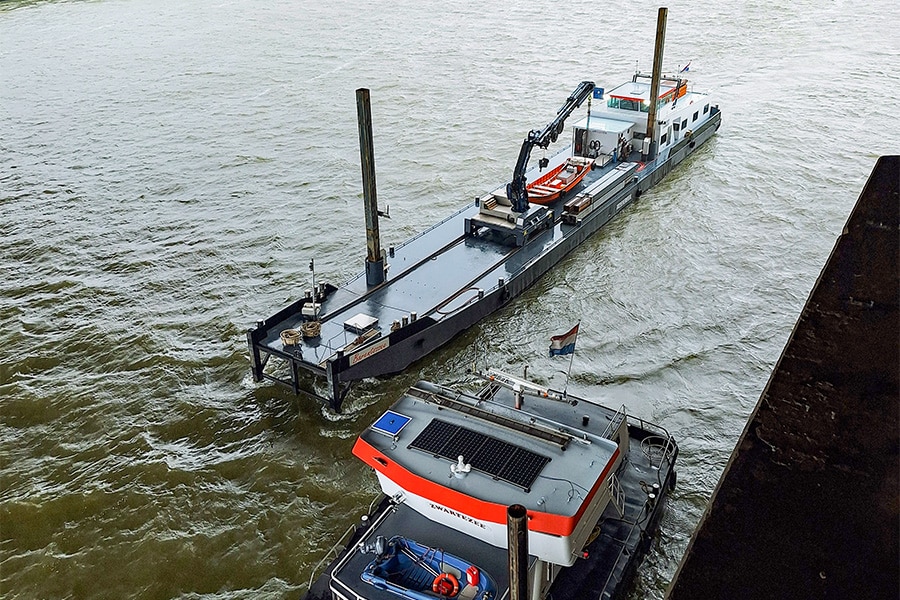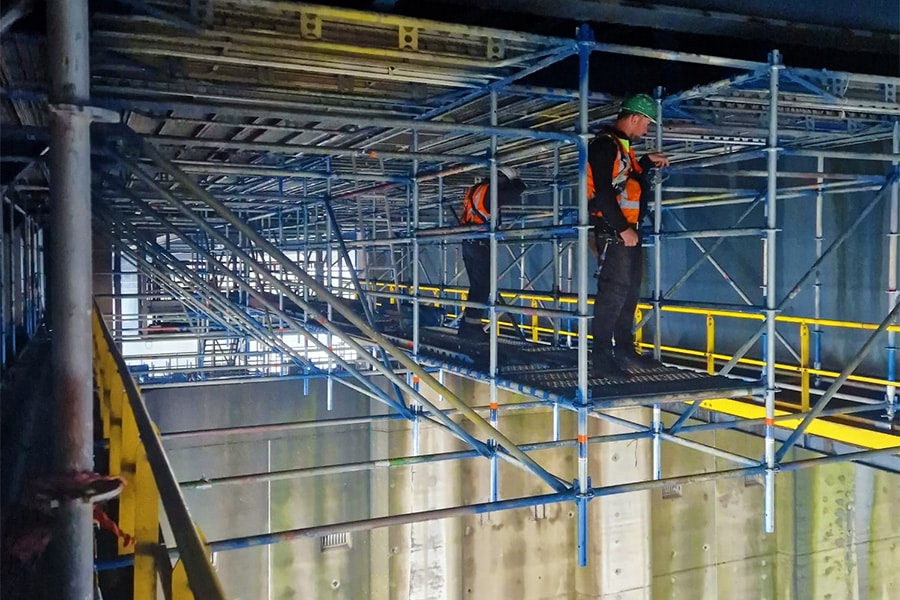
Construction team is key to success
At Vondelingenplaat, in the middle of the Port of Rotterdam, recycling company Reko is currently being expanded with a new thermal cleaning plant called Reko 2. At Reko, residues consisting of a mix of tar asphalt granulate and roofing leather are completely converted into primary raw materials, electricity and heat.
100% RECYCLING IS UNIQUE
During the treatment process, the asphalt is thermally cleaned in a rotating drum oven at temperatures of 1,000°C, which means that all harmful substances present in the asphalt burn completely in the oven. This thermal cleaning process results in clean sand, gravel and filler - ready for reuse - as well as hot waste gases from which energy is recovered in the form of steam that is then converted into electricity via a steam turbine. About 30 thousand megawatts of electricity are generated each year, or the same amount that about 7,500 households consume annually.
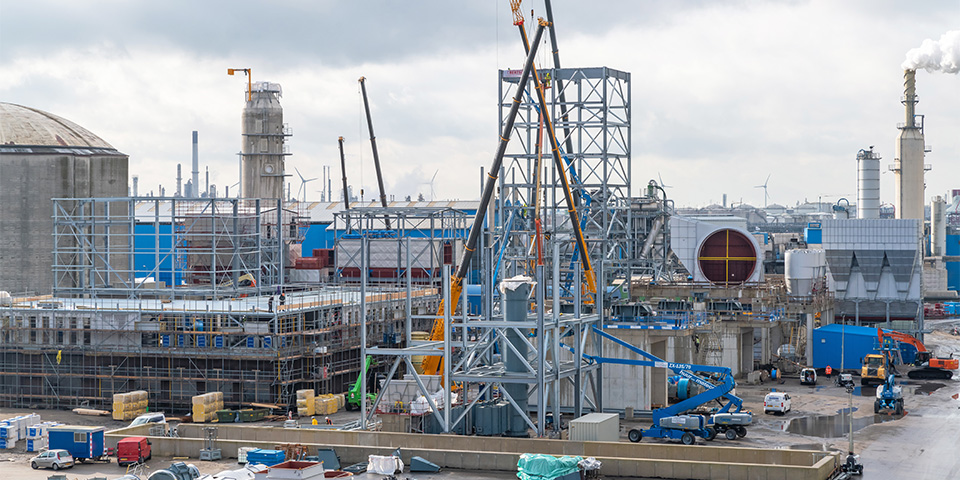
Overview Reko 2.
The new plant to be built is significantly more efficient because it uses the latest technology. Thus, the new plant not only consumes less energy, but also generates significantly more energy. The plant can generate electricity for as many as 50,000 households. In addition, the plant will be made suitable to provide heat for horticulture or district heating in addition to electricity.
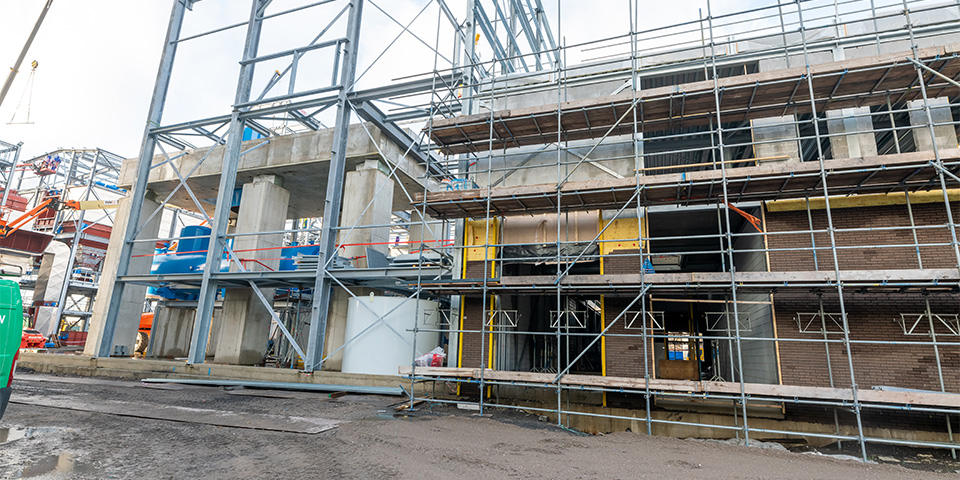
Power & control building.
Reko is unique in the world with both of these plants. Indeed, nowhere else is tar asphalt recycled in such a way for 100%, with practically no energy lost. The construction of this project can roughly be divided into two parts: the realization of the technical installations and the civil and architectural part. The construction of the technical installations is carried out by specialized foreign companies. For the civil and architectural part, cooperation has been entered into with the Dutch family company GMB.
EMPHASIS ON COOPERATION
The emphasis here is on collaboration. A construction team has been established that includes both the client and contractor. "Trust is the key word in this," says David Heijkoop, director of Reko. "In the construction team we have regular consultations and, if necessary, we can switch quickly. As a result, the execution fits perfectly with how we as the client want to have. In the beginning, we told GMB what we wanted to accomplish. We knew what facilities had to be built and GMB had to design the solution for that. Both in terms of foundations and floors." "Those solutions were devised by us in collaboration with Lievense engineers," says Maarten Driesse, commercial manager at GMB Haven & Industrie. "Specific points of attention were the large forces and loads, desired functionality and vibrations due to installations in operation."
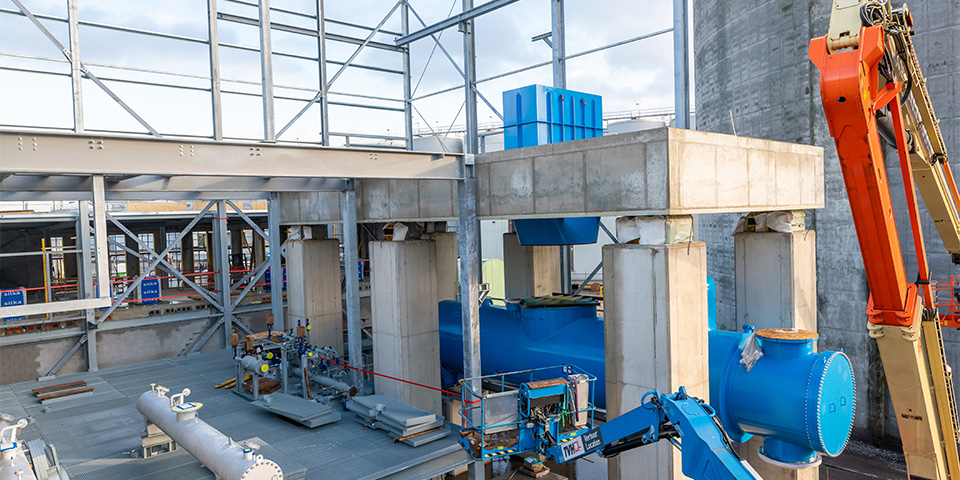
Power & control building with turbine table.
The functioning of the construction team leads to an interactive process. For example, during construction, various changes were made at Reko's request in order to achieve an even more sustainable installation. As a result, the final realization met the client's wishes with razor-sharp precision. "We also took advantage of the experience that Reko and GMB had gained in previous joint construction projects," says Driesse.
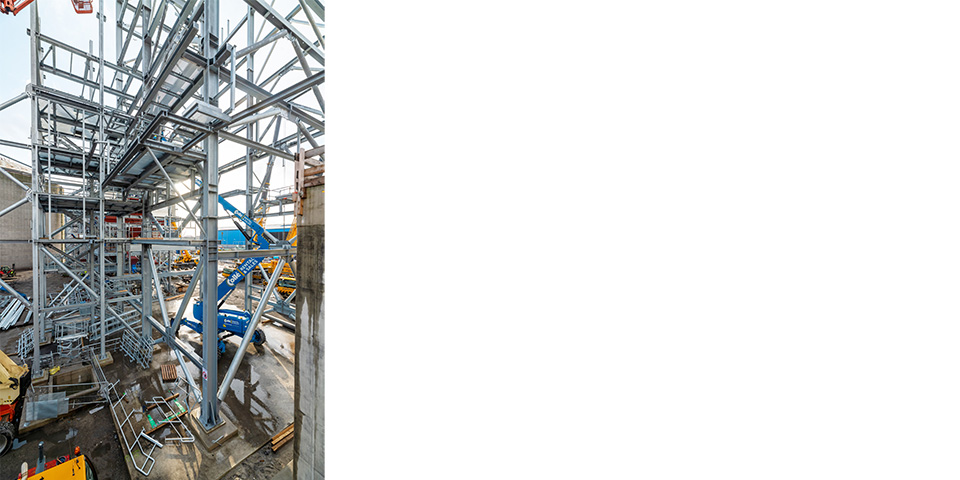
Steelwork Boiler building.
DOESN'T SEEM THAT SPECIAL BUT...
Christiaan Hakstege, GMB's project manager, says that at first glance the concrete work does not seem so special. "It's mostly a lot of concrete, some 6,500 m3, but the diversity of the different concrete components, the minimal deviations we work with and the variety of components to be poured in from the different plant builders make it a challenging and special project." A nice touch is that some of the concrete mortar used incorporates Reko's own Eco Granulate (sand and gravel from cleaned tar asphalt). By September 2020, Reko 2 should be operational.
